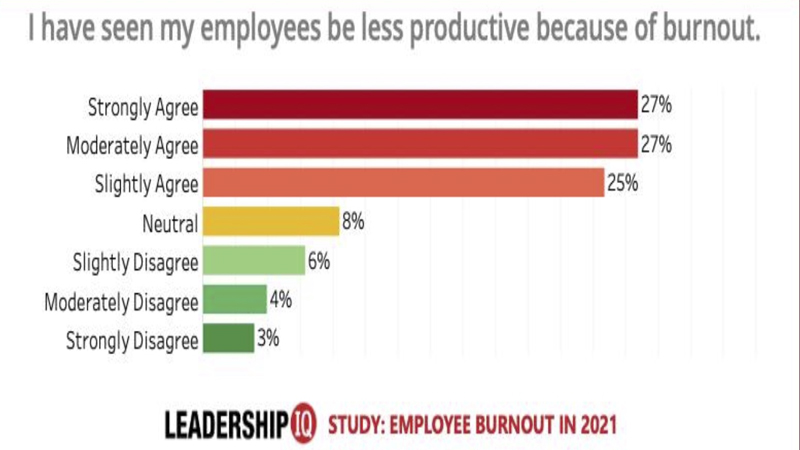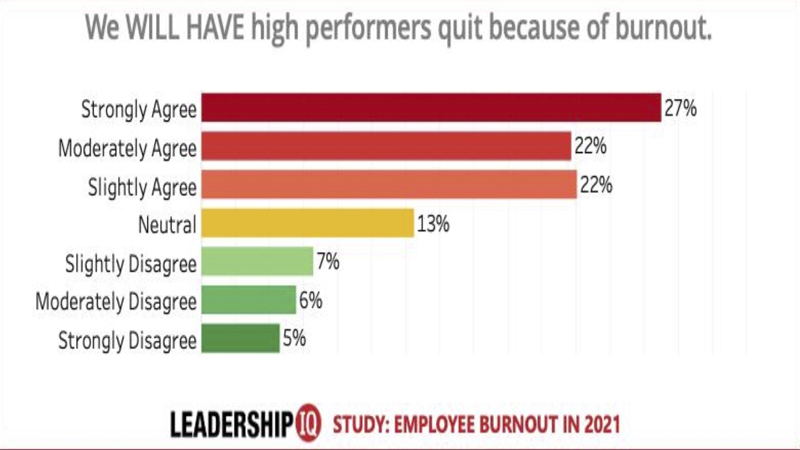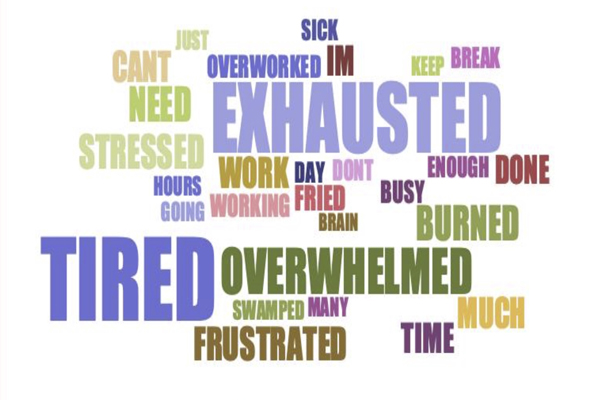The latest study from executive training firm Leadership IQ has revealed a dramatic rise in employee burnout, for both staff and leaders, illustrating an ‘ongoing’ and ‘stark’ crisis for companies.
Only 25% of leaders feel that their employees are thriving emotionally and mentally; while 79% of leaders have seen less productivity as a result of employee burnout, according to the study. Around 75% of leaders agree that their people are making mistakes as a result of burnout. Additionally, 84% of leaders have heard their employees use language indicating job fatigue; yet only 24% of leaders say their company conducts training that effectively reduces this problem.
The study defines employee or job burnout as “chronic workplace stress that causes exhaustion, reduces optimism and resilience, increases mistakes, causes lost productivity, and increases employee turnover”.

QUITTING BECAUSE OF BURNOUT
Another troubling finding is that leaders expect most of their high/best performers to quit from burnout. “Most revealing, 71% of leaders expect that high performers are going to quit because of the burnout issue,” stated Mark Murphy, New York Times bestselling leadership expert and Founder of Leadership IQ. “We’re in the midst of a full employee burnout crisis. “We conduct a lot of research… but the results of this latest survey were particularly surprising to us.”
Another important takeaway detail from the study is that early morning hours (between 6am-10am) are by far the most desired times for working without interruptions; while Fridays and Mondays are the most desired days for working remotely. These are just a few of the changes and conditions employees are asking for to reduce their stress; “so employers definitely need to be listening”, added Murphy.

LEADERSHIP BURNOUT
Leaders are not immune from burnout either. The study found that only 34% of leaders are themselves thriving emotionally and mentally. By contrast, 55% of leaders aren’t “thriving”. It’s incredibly difficult for a manager to mitigate burnout risk for their employees when they themselves are experiencing employee burnout (and feel like their mental health and emotional wellness are suffering), noted the report.
Additinally, 67% of leaders have also been less productive because of burnout; and nearly two-thirds admit that they have made mistakes because of burnout. If companies are serious about reducing employee burnout, they will need to also directly address burnout symptoms for leaders, the study highlighted.
However, very few companies are offering any training to prevent or reduce employee burnout. The study found that just 24% of leaders say their company conducts training for employees that effectively reduces their burnout. To stop the employee burnout crisis, this should be a “top priority for every organisation”. In fact, out of the list of possible burnout prevention interventions, training is one of the least expensive and highest ROI activities, noted the report.
WORDS TO WATCH OUT FOR
“I’m exhausted sick, frustrated, tired, or burned” are just some of the words that people use most frequently to describe employee burnout, the study found. Some employees may express their burnout quite differently. For example, say that “they’re struggling to maintain a healthy work life balance”; or “they’re receiving unfair treatment”. They might simply also ask their manager how to access the employee assistance programme.
All of those words and phrases are clues to worker burnout. But as a starting point, the word cloud below will give managers and HR/DE&I/wellbeing professionals words to watch for.

Click here to access the full report. Earlier this year another study revealed that leaders are burning out at record rates, creating serious retention problems at senior levels. Click here to read more.







































